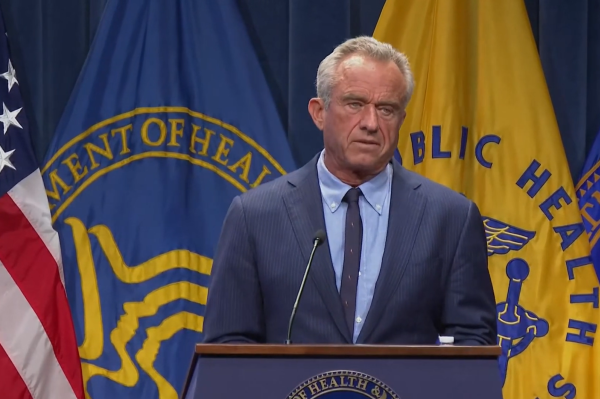Judge Denies Request for Stay on DADT Injunction
U.S. District Judge Virginia A. Phillips on Tuesday denied the government's appeal for a temporary stay on the injunction on "Don't Ask Don't Tell," allowing openly homosexual men and women to enter the military without interference.
The decision was made after a hearing on Monday from which Phillips determined that the government did not provide sufficient proof to the Department of Defense's claim that lifting the ban on open homosexuality in the military would cause "military unreadiness."
"While the defendants' interests in preventing the status quo and enforcing its laws are important, these interests are outweighed by the compelling public interest of safeguarding fundamental constitutional rights," wrote Phillips.
She concluded, "The evidence the defendants submitted with this application has not demonstrated otherwise."
The recent decision leaves the Department of Defense and the armed forces in the same position they were in last week, when the government was ordered by Phillips "immediately to suspend and discontinue any investigation, or discharge, separation, or other proceeding, that may have been commenced under the 'Don't Ask, Don't Tell' Act." The Marine Corps has reportedly already begun contacting recruiters, issuing them a directive that "homosexual conduct" no longer is a "bar to accession."
Ranking member of the U.S. House Armed Services Committee Rep. Howard McKeon (R-Calif.) denounced Tuesday's ruling, saying, "This decision could have a negative impact on military and family readiness since the Department of Defense is unprepared to address the issues that are bound to arise from such a hasty change. "
Family Research Council President Tony Perkins also condemned the decision, saying, "Judge Phillips' refusal to grant an emergency stay is an incredible display of contempt for the Constitution and our nation's military leaders who say overturning this law will be enormously disruptive for the men and women who defend our country."
"It's only logical that a stay should have been granted to avoid the confusion that is already occurring with reports that the Pentagon is telling recruiters to begin accepting homosexuals," the social conservative leader added.
Despite the ruling, it may be premature for openly gay individuals to apply since the Department of Justice is moving forward with an appeal to the U.S. 9th Circuit Court of appeals in San Francisco.
"The federal government is putting them in a position where they can be rejected before they ever put on the uniform," explained Bruce Hausknecht, judicial analyst for CitizenLink, Focus on the Family's family advocacy organization.
Hausknecht said he remains hopeful that the appeals court will issue a stay. However, he has noted that President Obama and his administration "sabotaged the case" by failing to appeal related cases to the Supreme Court.
Obama has made it clear that he wants to end the Clinton-era policy and plans to do so legislatively. In a White House press briefing Tuesday, Press Secretary Robert Gibbs said Obama plans to press the U.S. Senate during a lame duck session to pass a defense authorization bill that would end DADT.
"The president believes that the policy will end under his watch precisely because in the defense authorization bill pending in the Senate is a provision that would repeal what the president believes is unjust, what the president believes is discriminatory," said Gibbs.
The bill has already passed in the House of Representatives.
Hausknecht said Obama's effort is politically motivated and meant to energize his base. "The people that want to turn the military into a political issue are missing the point of the military, which is to win wars," he commented.
DADT was made law in 1993 as a compromise between a conservative Congress, which advocated a ban on gays in the military, and then-President Bill Clinton, who advocated against it. Under the policy, gay and lesbian service members are restricted from openly acknowledging or exhibiting conduct that betray their sexual preference. Doing so would lead to dismissal. According to a 2005 U.S. Government Accountability Office report, the DADT law has resulted in over 10,500 dismissals between 1995 and 2004.
Phillips, a U.S. district court judge for the Central District of California, ordered the halt to DADT legislation in reaction to the lawsuit brought by Log Cabin Republicans of America, which challenged the 1993 law. Last month, Phillips determined that DADT was unconstitutional. And last week, she ordered a nation-wide injunction to halt DADT discharges.
According to Hausknecht, a repeal of DADT will hamper military chaplains and Christian soldiers from expressing their faith.
"Any kind of Don't Ask Don't Tell repeal puts the religious liberties of Chaplains at risk," he noted.






















